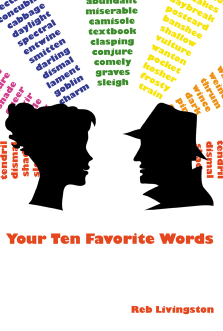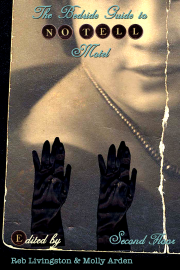Print vs. Online Pubs
Tony Tost ponders starting an el cheapo print pub because of the frustrating time lags between editing Octopus and actually launching it. I have no idea how he and Zachary manage Octopus but it sounds like they are in a position where they have to rely on other people to physically publish it. Each issue appears to be uniquely designed.
What I don't understand is why so many online publications insist on modeling themselves after print publications. While putting together "issues" for a print magazine makes all kinds of sense, it makes literally no sense for an online publication. Online publications have the ability to update, add and modify on a minute by minute basis -- why put up static content and leave it there for months at a time? Perhaps I took the education I received while working at AOL for granted, but we even pressured content providers like Merriam Webster's Dictionary and Compton's Encyclopedia to "keep it new" and in those cases that was sometimes a challenge. At AOL it was all about "hits" which we now call "visits" -- areas that frequently updated content got more hits. We were obsessed with hits because that meant advertising revenue. In online magazine terms, hits or visits means readers -- any magazine editor should be concerned with readers, finding new ones, keeping the old ones coming back.
For poetry and essays, I believe the best way to find readers is through an online medium. I've published in both print and online magazines and no one has ever contacted me regarding something that appeared in print. I can only assume somebody has read those pieces. I don't really know. But I have been contacted about work appearing online. I know those pieces have been read (and continue to be). My work isn't appearing in magazines with huge distribution, most print journals I've been in have had press runs of a few thousand, appear in a handful of bookstores and have a few hundred subscribers. In a couple of years, it would be nearly impossible for someone to get hold of that issue without going through great lengths. Even a relatively unknown online pub is going to get a couple thousand visits in a month (think of how many visits these one-person blogs get). That's more readers than most print pubs. For as long as an online pub stays in operation, my work is easily accessible years after the fact. For someone who's always been more interested in readers than a myopic view of pub prestige, online is by far preferable.
My advice to anyone publishing an online magazine: Design it so that it can be easily updated (by you! -- learn some html). Forget the "issue" concept. Why make such a big production for something with so little payout? Put up new pieces when you have them and build up your readership. Get readers in the habit of visiting your online magazine on a weekly or even a daily basis.






4 Comments:
hear hear! like jimmy does cwhobb, or like dan does unpleasant event schedule. (though i really really really got a kick outta my page in gastronomica. there was like 4-5 inches of white space all the way around my little poem. yummmmmmmmmmmm.)
Reb,
I think in a lot of ways I agree in re-thinking publishing outside the magazine format. From my post:
"I've also been thinking about an on-line site called Mine which wouldn't use the magazine issue-by-issue format but something more like a gallery, or just a house, with rooms. New rooms added all the time to the main structure, and I'd kind of run the house and keep it clean and ask others to curate/build rooms."
I still like the idea of bringing in multiple views at once, a wave of energy maybe, creating a context for the poems beyond just the poems themselves. That, I think, is the attraction of the issue by issue format. I really think on-line is amazing for the insane readership to capital ratio. We plug 35 a bucks into Octopus a year for the domain, the rest is just lots and lots of time. I don't want to think about how much money, or how much tenure, we'd need to pull in the same readers in print.
But I think bit by bit loses out on the whole big ol' wave effect, of walking into a room with fifty paintings by thirty artists as opposed to five by one -- the potential for new connections to be made.
The brilliant idea behind Blogger and Google is Keep It Simple, Stupid. By erecting an elegant framework and letting the users create the output, a vast amount of activity is allowed to generate. Is it messy? Of course, but it will grow to to something magnificent. What works will prevail, what won't will die.
The key for a successful online adventure has been hinted at by both Reb and the commentor prior to myself: "Seperate content from design". In this manner you can gather thousands of poems, pictures, art, 'stuff' and present it in a standard format. The format can then change around the content without respect to timelines or coordination between content providers and designers.
Define the 'content' section(s) of your on-line thing, then wrap the design elements around that. You could potentially have several designs all working and valid, one for 'NEW' one for "RECENT" and one for "ARCHIVE" or however you want to manage your content and present that to your viewers/readers.
This consistent design and seperation of design and content allows you to easily update daily/hourly/minutely without worrys about getting that darned graphic designer off his/her fatt patutie and making images for you... also, it saves you capital for other more important things :)
Consistent updates mean consistent readers, which translates into more viewers as people talk and find value in your content. Just watching the logs for webservers which hold images for some blogs is interesting, you see the same viewers day in and day out, some even multiple times each day: "morning paper viewing", "lunch time news check", "before I leave for home I'd better see that nothing important is going on".
Anyway, I take this from a slightly different perspective than Reb does. My focus is on the technology that drives these things, not the content itself. Making a large/complex (and thing more than 10 pages is 'complex' and arduos to maintain) site managable will make it more successful.
-disgruntled tech worker #538,852,023
Post a Comment
<< Home